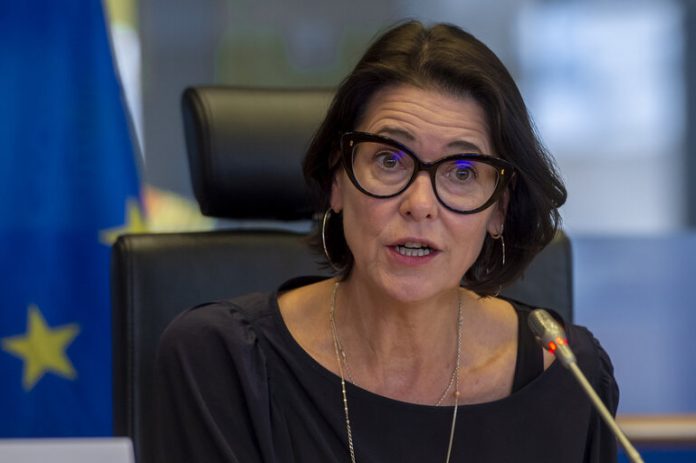
The EU pandemic committee has elected a Chair and will now begin to look at the European response to the virus
On Tuesday (19 April) the committee elected Kathleen Van Brempt as its Chair, alongside four Vice-Chairs.
The First Vice-Chair is Andreas Glück (Renew Europe, DE), the Second Vice-Chair is Ewa Kopacz (EPP, PL), the Third Vice-Chair is Michèle Rivasi (Greens/EFA, FR) and the Fourth Vice-Chair is Karol Karski (ECR, PL).
COVI will specifically look at four elements of the EU virus response:
- Health;
- A coordinated response, respecting democracy and fundamental rights;
- The societal and economic impact;
- And finally, the EU and the rest of the world.
The committee, COVID-19 pandemic: lessons learned and recommendations for the future (COVI) will be looking into the European response to the pandemic – focusing on areas like health, democracy and fundamental rights, economy, and society along with the EU’s global relationships.
The vote to establish the special committee was carried 642 in favour, 10 against and 39 abstentions, in March, 2022.
Key issues during early days of the EU COVID response, misinformation and vaccine speed
When it comes to the immense category of the EU and the world, one key element that COVI is expected to untangle is vaccine hesitancy, especially the spread of misinformation around the virus and how the EU could stop this happening in the future. For instance, heart inflammation was falsely framed as a really common response to mRNA vaccines, dissuading some from taking life-saving medicines.
Vaccine hesitancy haunts some Member States more than others, with Bulgaria still hovering at 29.6% of people having two doses of the vaccine – according to the European Centre for Disease Prevention and Control.
One of the key complaints during the early stages of the pandemic was about the speed of vaccination manufacturing, with the EU racing to adjust processes for vaccine approval and still remaining behind countries like the US and UK.
The EU COVID-19 strategy will be assessed, especially looking at how Advanced Purchasing Agreements worked and with a poignant focus on the “transparency and enforcement of contracts” – alongside the issue of “legal liability” in vaccine manufacturing. At one point, the European Commission had a public falling-out with the pharmaceutical company Pfizer, after it received less vaccines than expected in a shipment. This absence was purported to be due to dishonesty from the pharmaceutical company, while the CEO of Pfizer attributed the smaller delivery to ordinary biological failures at the site of manufacturing.
COVI is also expected to figure out how to deal with the freshly highlighted inequalities, whether economic or social. This is a vague and foreboding task even in one Member State, so it will be interesting to see how the EU pandemic committee approach this multi-faceted, ongoing issue.
Chair of COVI says EU “lacked the necessary tools” to act during pandemic
The newly elected Chair Kathleen Van Brempt said: “Although this pandemic has not yet ended, Europe already finds itself in the next crisis. In the past fifteen years, the EU has weathered a financial crisis, a refugee crisis, a pandemic, and now a war. Through these crises, we saw the EU often lacked the necessary tools to act quickly. We saw member states only agreeing a European response when it was already too late, be it on the joint procurement of medical equipment, a common European migration policy, or the deepening of the Energy Union.”
MEP Kathleen Van Brempt is part of the Group of the Progressive Alliance of Socialists and Democrats in the European Parliament. She will be leading this investigation into the EU virus response.
She further said: “This has brought us the European Union we know today: one that can react to crises, but lacks the political mandate to prepare for them.”










